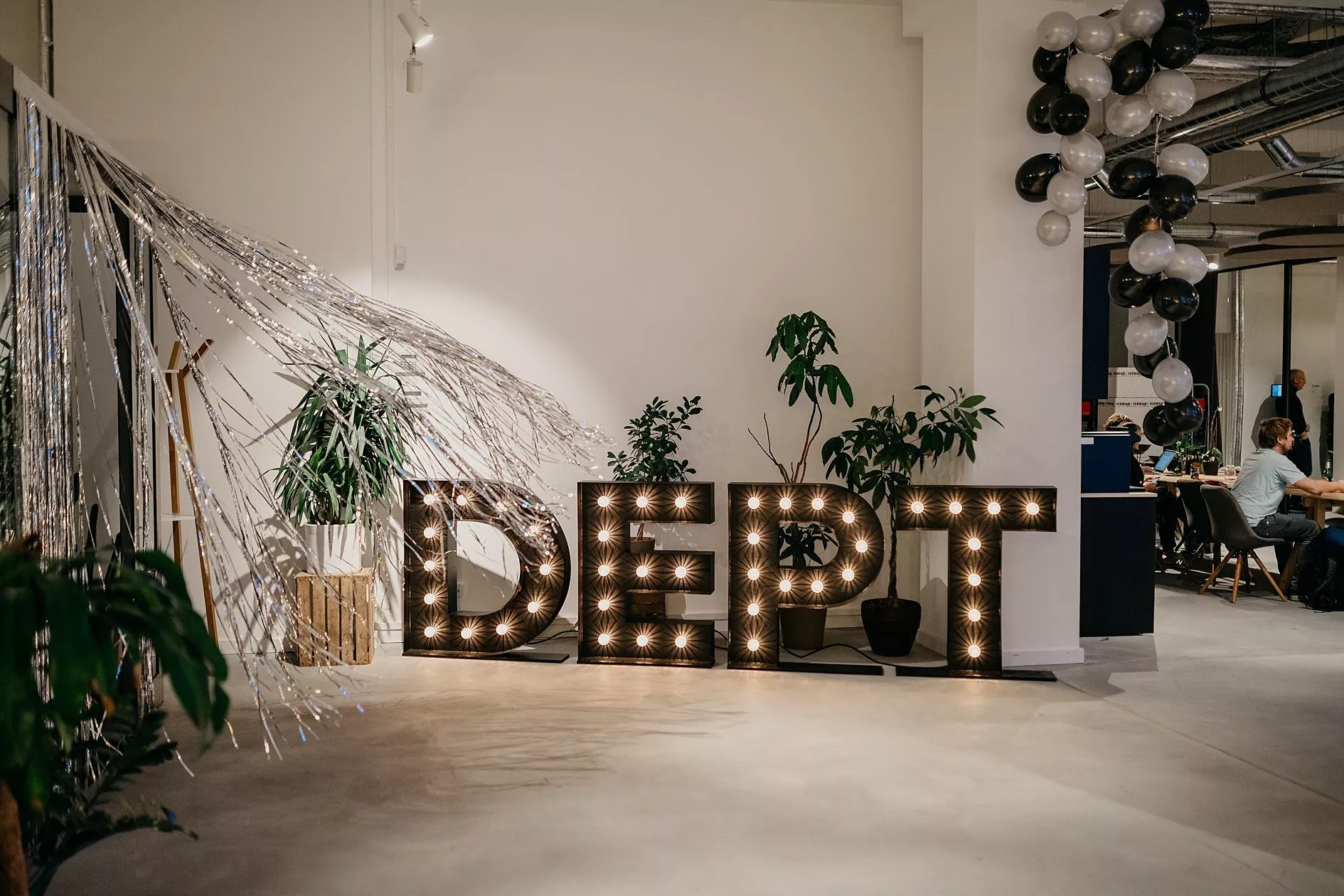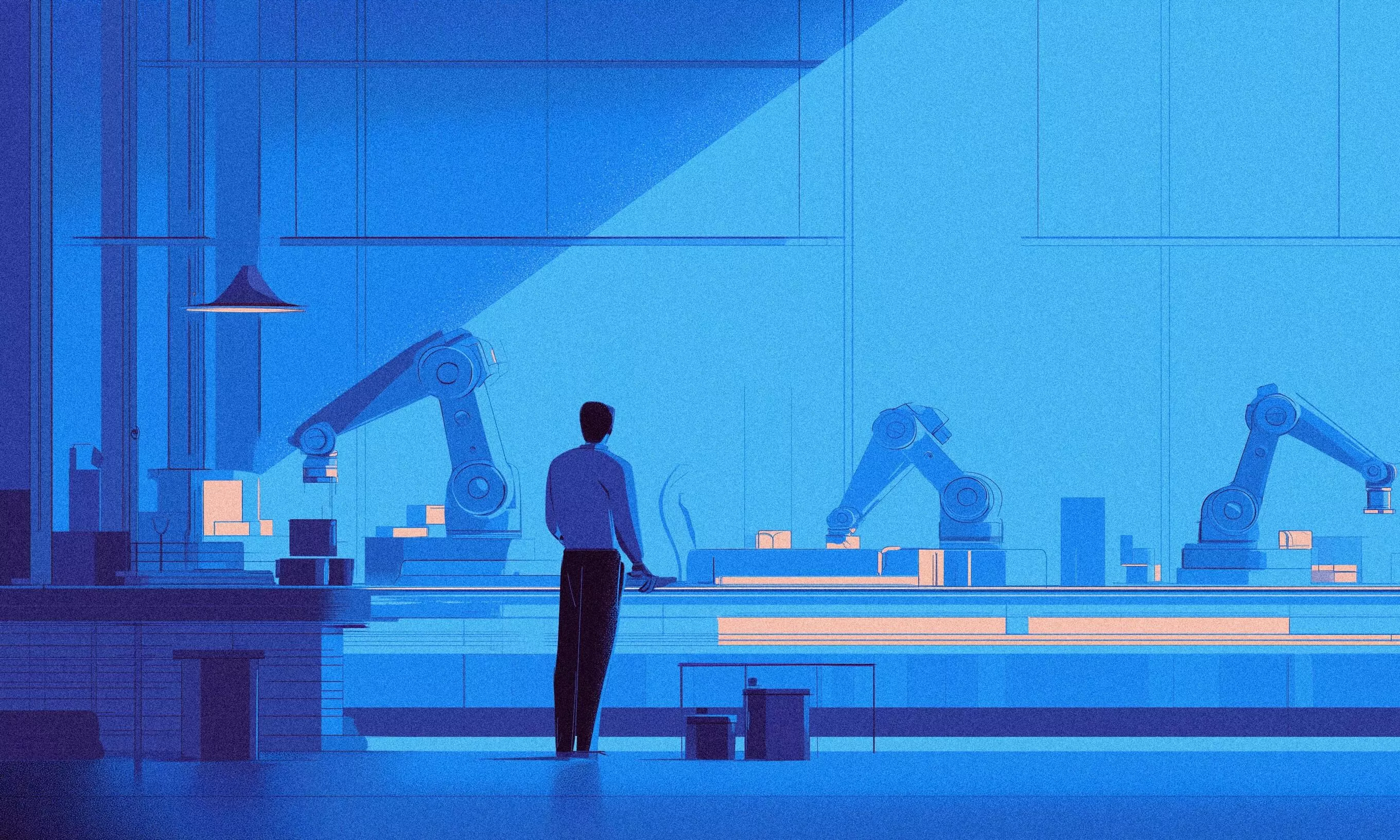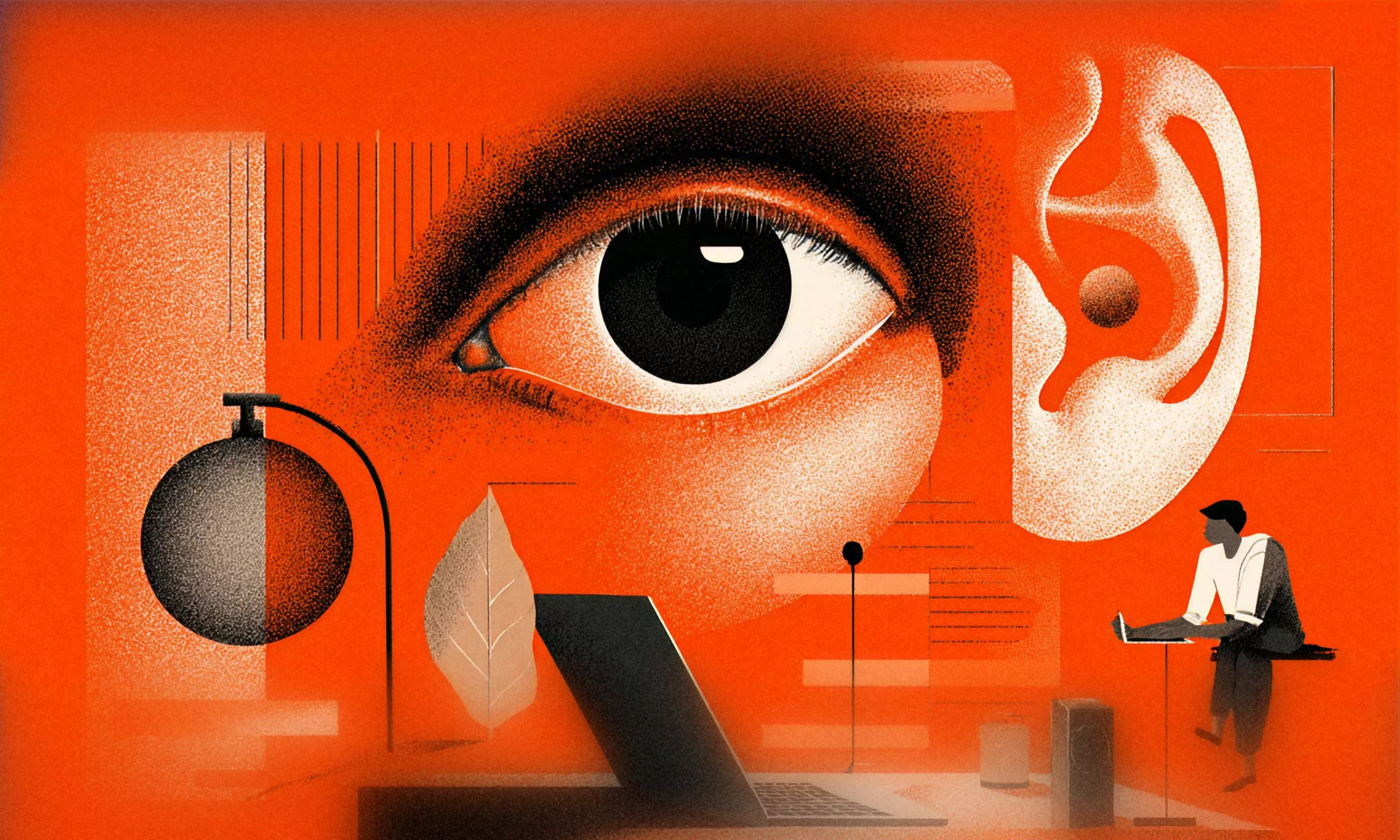Since their “humble” beginnings as a 120-people local web and development agency called TamTam in 1996, today DEPT is a globally recognized one-stop shop for digital solutions with 1500 people, 100 shareholders, and 20 integrated agencies.
Co-founders and brothers Bart and Paul first set out on their international adventure in 2015 and started laying the foundation for the DEPT of today and unraveling the hidden demand for agencies that handle the full scope of digital initiatives from a single point of contact.
Ever since, they’ve pursued new companies to acquire—and they aren’t planning to stop, regardless of the global pandemic.
I sat down for a two-guys-in-a-bar type of chat with Bart Manuel, co-founder of DEPT, to find out how they’ve approached the COVID-19 chaos, what their plans for the future are, and what they think businesses around the world should be doing.
There’s one thing I always wondered, Bart. What does the name TamTam stand for?
Just drums, TamTam drums, which are like long-distance communication. In 1996, you had to explain to people what is the internet, and what you can do with it. Oh, you really can visit a website, and there was a lot of magic in that.
So we ran that agency and built it organically. But it was pretty much a national, Dutch agency, focused on our home market and based in 2-3 cities in the Netherlands. We grew that organically until around 2013, 2014. We then wanted to set out on an international adventure, shift gears a little bit.
In 2015 we started on a journey that eventually led to the foundation of Dept and now here we are, 5 years later.
And 5 years later, the world has gone berzerk. Different things are happening in different markets, depending on the situation with the virus there. We see a lot of small agencies struggling, and larger agencies keeping it together. What do you think?
We’re seeing larger traditional companies like WPP and Omnicom all publishing large cuts, in terms of either salary or people, so obviously, they’re struggling. Specialized agencies, we’ve heard a large variety of stories. I think it’s mainly dependent on your split in the client segment.
If you’re heavily invested in anything like travel, airlines, tourism, events, if that’s your clientele, then obviously you have an issue.
Fortunately, Dept always had a great diversification, which means we suffer some, but not too much. We’ve been continuing to hold conversations with all sorts of agencies, both in Europe and the US, and we see various degrees of optimism. We’ve actually seen an acceleration in the ability to hold the initial conversations because it’s totally acceptable to do this via Zoom, people have more time available so are quite open to conversations. Everyone is more efficient.
What have been the biggest setbacks so far?
There are two things holding us back a little bit. Obviously, in the first month, month and a half, we’ve had to really look at our cash flow and debt governance, etc, that would be a difficult time to attract cash needed in order to close a deal. Now I think we’re sort of past that stage, so I think it’s a good thing.
The other thing is that we spend a lot of time on a personal level with the entrepreneurs and sellers of the agency to make sure we build a trusted relationship. And as good as Zoom is or Google Meet is, for us, it’s adamant that we need to be in the room, in the restaurant together, with the people, with the founders to really build that.
We’re going to do a lot of things differently, we’re going to do a lot of things online, but we’re still going to travel to make that connection and build that relationship. And that’s something that’s just not possible right now.
Especially because our main focus pre-COVID was and still is on the US. We’re building the initial relationships but the true moves we can only make when things are opening up again. But what’s really positive in the US is that there is endless optimism and opportunism in entrepreneurship where no matter how bad the situation is, they always bounce back.
In the other markets you’re working with, do you feel you’re coming back? From our perspective, when the whole thing started, my initial reaction was switching to war mode.
We had the same experience here. Obviously, the initial reaction was a bit of a shell shock, and in the first couple of weeks, we’ve seen the biggest shifts. Big clients in travel and airlines, pulling all the work. You see it happening, and you think everything is falling apart. But after that first shock things stabilized pretty quickly.
True, after a while, we figured out what’s going well, what’s not. Some clients have pulled back on budgets, but other really great opportunities have occurred so we’re in a really good place right now, I think. What about you?
Just as you, if you’ve invested in your client relationships and if your clients aren’t going anywhere, then things just continued. And we’ve had lots of very good reviews on our ability to deliver, continue to deliver from a work-from-home situation, especially productivity and creativity has been going up, lots of energy and ambition.
Sounds like remote working has been working out well for you.
We are seeing that collaboration is much better in this situation than it was before, so that’s a good thing.
Because collaboration gravitates towards the offices, right? We have more than 20 offices throughout Europe and the US. But you usually collaborate with the people around you physically, but the good thing is, since there’s no one physically around you, all of the sudden the barrier to collaborating with someone in Rotterdam or someone in the US, it’s the same barrier.
Are you sticking with the remote setup post-Corona? Do you think it’s sustainable?
In terms of keeping the same level of productivity in the long run, I think working from home all the time is mentally tough for most people, so that’s not going to work. What we’re working towards is the mixed mode, where people will have lots of more autonomy on how and where they want to work: From home, from a cubicle, or open space.
We’re also exploiting the existing social network–the relationships that you’ve built, just squeezing the last bits out of it.
But the thing that we don’t do now is build new relations, new connections. Onboarding the new employees to the company, to the culture. Doing that online is really, really tough.
We’re looking into how to safely reopen the offices, so there’s this buzz again in the office, and people can find a good mix from working from home and the office.

That’s a good point on reusing social ties, both in terms of colleagues but also clients.
I mean, how do you build trust and meet new people? That’s difficult. So inherently, I think the business will become a little bit more local. Within the Netherlands, it’s easy to collaborate with the client, I can just go to the Eindhoven office and find people there.
That’s interesting to me because most of our work has always been delivered and sold online.
In terms of finding new clients and building business, we’ve been doing quite well in the last two months. I would say, very good. Much better than we initially expected two months ago. So yeah, maybe even for us as well it would be structurally better to find clients online only and to start doing business with them.
But still, in the new normal, you’ll lose a little bit of dynamics, let’s put it that way.
Yeah, we’re seeing that. A couple of projects that should have started for us got paused. We did the same–a hiring freeze. I thought if this starts getting worse, I want to be conservative about any decisions I make. But right now I feel pretty optimistic, like those Americans you mentioned.
Yeah, you have a little bit of that. You’ve been infected with the American virus. The good one.
We need to realize that 5-10% of the economy is gone and I don’t think it will return easily in the coming year, year and a half. Especially in the hardest-hit sectors, it’s going to be tough. We need to adapt. One development that I specifically wanted to mention, it’s quite interesting, we see an acceleration in clients that want to accelerate their digital transformation.
I know everyone has been using that word, and we’ve been avoiding it, but the big realization for everyone is if you’re digital, you’re a winner. If you’re not digital, you’re going to be left behind.
Everyone who still has the stamina and the cash and the ability to invest is going to be investing in their digital capabilities.
So we’re shifting our focus from the sectors that are obviously going to have a hard time and focusing on the businesses that are going to be good. And focusing more on building a digital business, as opposed to maybe a new campaign or new marketing or content.
Let’s focus on the business first.
Why do you hate digital transformation as a term?
Because everyone uses it, it might be a little snobbish of me, I don’t know.
One realization we had recently, we were saying to each other up until a few months ago let’s not talk about digital transformation, or maybe let’s not talk about digital anymore because everything is digital.
Now we realize, due to COVID, a lot of businesses have been hit really hard, even the digital flagship cases who might have even 80% of the revenue coming from traditional high-street retail and only 20% online. They lost 80% of the business.
So our realization is that digital transformation is not done at all, there’s so much work to be done in so many businesses, especially B2B and supply chain integration. That’s where we’re going to be focusing our attention in the coming time.
So if I’m hearing you right, the whole trick is to pivot as quickly as you can, do something else, because some industries just won’t be there. It will be tougher for them to recover and agencies are always tied to other businesses, basically.
I find it difficult to predict, but we’ve always diversified our industries, services, and geographies. Now’s the time to benefit from that, where we can rebalance things if we’re smart about it. The good thing is that you don’t have to look that far into the future, just make sure you adapt along the way quickly and then figure out where that leads us.
We’ve seen some huge drops in digital marketing, performance marketing, SEO, etc. We think mainly because we had some really strong clients, travel agents, airlines, etc. that were doing a lot of work there.
In the long run, digital marketing will be winning over traditional advertising big time–and it will be accelerated by this crisis.
We don’t move out of digital marketing because we’ve lost some business, we’ll stick to it, but we’ll refocus their attention as well, on the industries that are now going to be pushing harder.
Wrapping this up, would you say we’re privileged? I mean, if we were in the business of anything that requires people to get outside, we would be screwed right now. I can’t think of a better job, in terms of doing digital and software and marketing.
I think it’s good to realize and to make sure we keep caring for the less privileged people. If you were privileged to have a cleaning lady in your house and now she cannot come, keep on paying her, right? I mean, it’s the simple things.
There are people who are going to get hit really really hard, who don’t have any income or social support to fall back upon. I can’t think of how it must be for hundreds of millions of people around the world that are in a really dark place. It’s good to realize that we are extremely privileged.
Doing your thing, learning from that, and making sure you care for your business and your people–it’s the least you can do.










